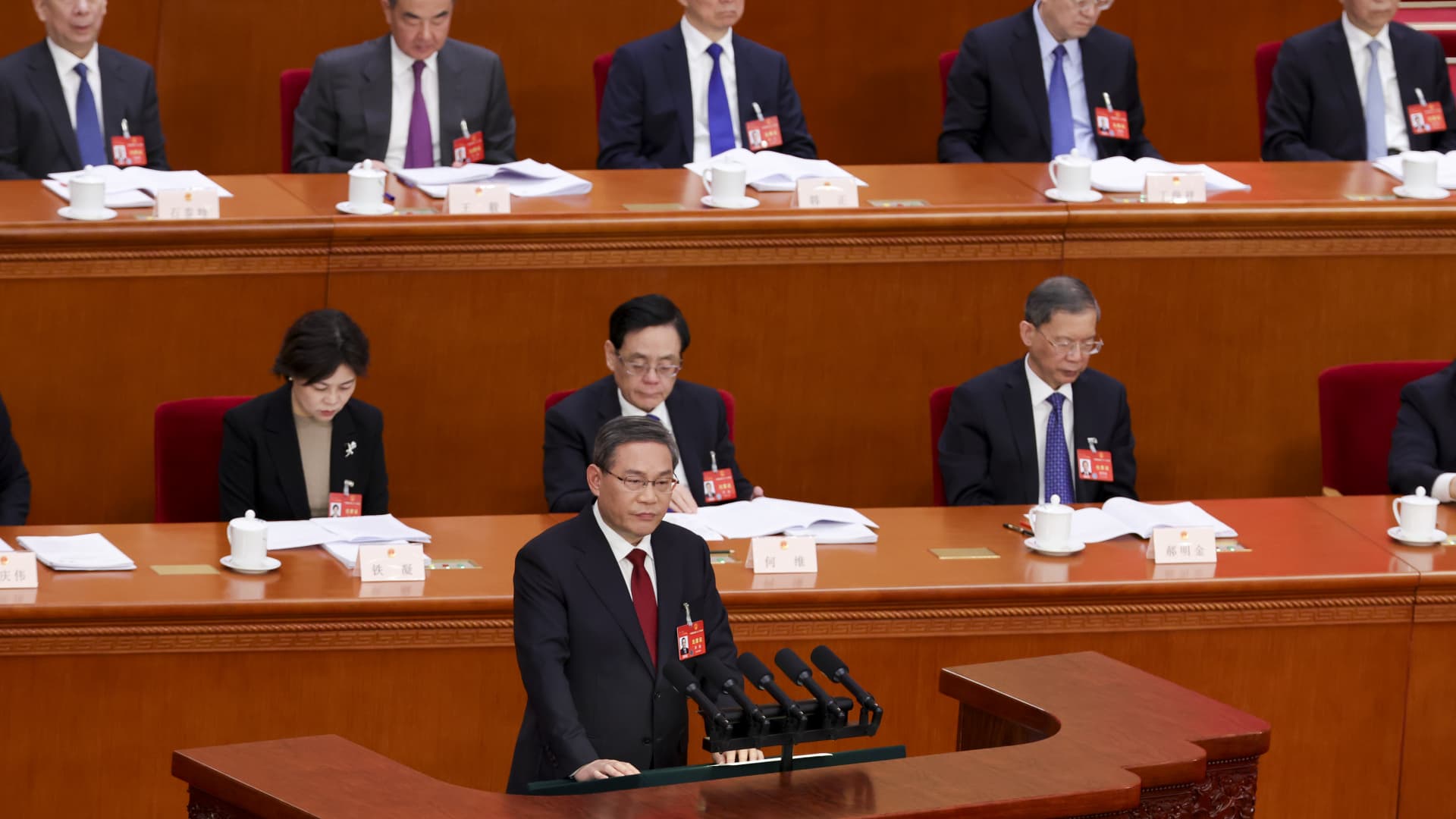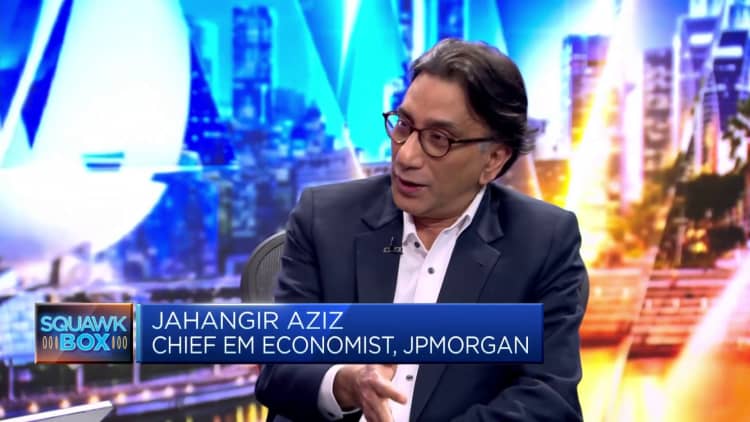China sets GDP target of ‘around 5%’ for 2024

Chinese Premier Li Qiang delivers a speech during the opening of the second session of the 14th National People’s Congress at The Great Hall of People on March 5, 2024 in Beijing, China.
Lintao Zhang | Getty Images News | Getty Images
BEIJING — China set a growth target of “around 5%” for 2024 and announced the issuance of “ultra-long” special bonds for major projects, according to a government work report Tuesday.
Premier Li Qiang, who delivered the report, also pledged that China would remove restrictions for foreign investment in manufacturing.
China set a deficit-to-GDP ratio of 3% for the year, down from a rare upward revision to 3.8% late last year from the original 3%.
The work report also said Beijing will issue 1 trillion yuan ($138.9 billion) in “ultra-long” special treasury bonds this year to fund major projects aligned with national strategies, while 3.9 trillion yuan of special-purpose bonds for local governments will be issued this year, 100 billion yuan more than last year.
“We should appropriately enhance the intensity of our proactive fiscal policy and improve its quality and effectiveness,” the work report said.
The on-budget deficit excludes special bonds, policy bank bonds and local government financing vehicle debt, according to Louise Loo, lead economist at Oxford Economics, who last week forecast a 3% to 3.5% deficit.
An IMF report earlier this year said its conversations with Chinese officials indicated they viewed last year’s fiscal policy as proactive.
“The ultra-long-term special treasury bonds issued on a trial basis will not be included in the deficit, and can be issued at an appropriate time based on market and economic conditions under the trend of moderately increasing leverage of the central government to ensure flexibility,” said Bruce Pang, chief economist for the property consultancy JLL, in a CNBC translation of his comments.
“They may gradually replace the issuance of local special bonds to better support the country’s long-term and major strategic planning and construction of key areas and implementation of large-scale infrastructure projects,” he added.
Two Sessions
The targets for GDP and other economic indicators were published as part of the opening of the National People’s Congress annual meeting in Beijing, which more than 2,800 delegates attended Tuesday.
Last year China’s economy grew by 5.2%, matching the official target of around 5%. The overall rebound from the pandemic was slower than many expected, while growth also faced drags from a slump in real estate and exports.
This year, China plans to target an urban unemployment rate of around 5.5%, the creation of 12 million new urban jobs and a consumer price index increase of around 3%. The 2024 targets were the same as those set for 2023.
In 2023, the National Bureau of Statistics said the country averaged a 5.2% unemployment rate in cities and created 12.44 million jobs. However, the consumer price index rose by 0.2% amid lackluster demand.
The work report emphasized the need to “ensure both high-quality development and greater security,” preventing risks and maintaining social stability, among other tasks.
It called for implementing the decisions and plans of the Communist Party of China’s Central Committee.
China’s economic policies for the year ahead are typically discussed by top party leaders in December. Local governments hold their own meetings to set regional growth targets, before the National People’s Congress announces the goal for the entire country.
Beijing in recent years has downplayed the number in favor of what it calls “high-quality” growth.
Defusing risks
The work report said that “internal drivers of development are being built up,” but added the country should be “well prepared for all risks and challenges.”
China pledged to improve the long-term mechanisms for preventing and controlling risks.
“We will implement a package of measures to defuse risks caused by existing debts and guard against risks arising from new debts,” Beijing said in the work report. “We will take prudent steps to defuse risks in small and medium financial institutions in some localities and take tough measures against illegal financial activities.”

China also pledged to “meet justified financing demands of real estate enterprises under various forms of ownership on an equal basis” and “make concerted efforts to defuse local government debt risks while ensuring stable development.”
China’s real estate troubles are closely intertwined with local government finances since they have historically relied on land sales to developers for a significant portion of revenue.
The property market slumped after Beijing cracked down on developers’ high reliance on debt for growth in 2020 — ensnaring some of its largest real estate developers in bankruptcy and weighing on consumer growth and broader growth in the world’s second-largest economy.
“Preventing and defusing risks in certain fields remain a challenging task,” China’s top economic planning agency National Development and Reform Commission said in its annual work report. “Hidden risks, such as debt-related risks and financial risks, are still prominent in some localities, and it takes time to foster a new model of development for the real estate sector.”




